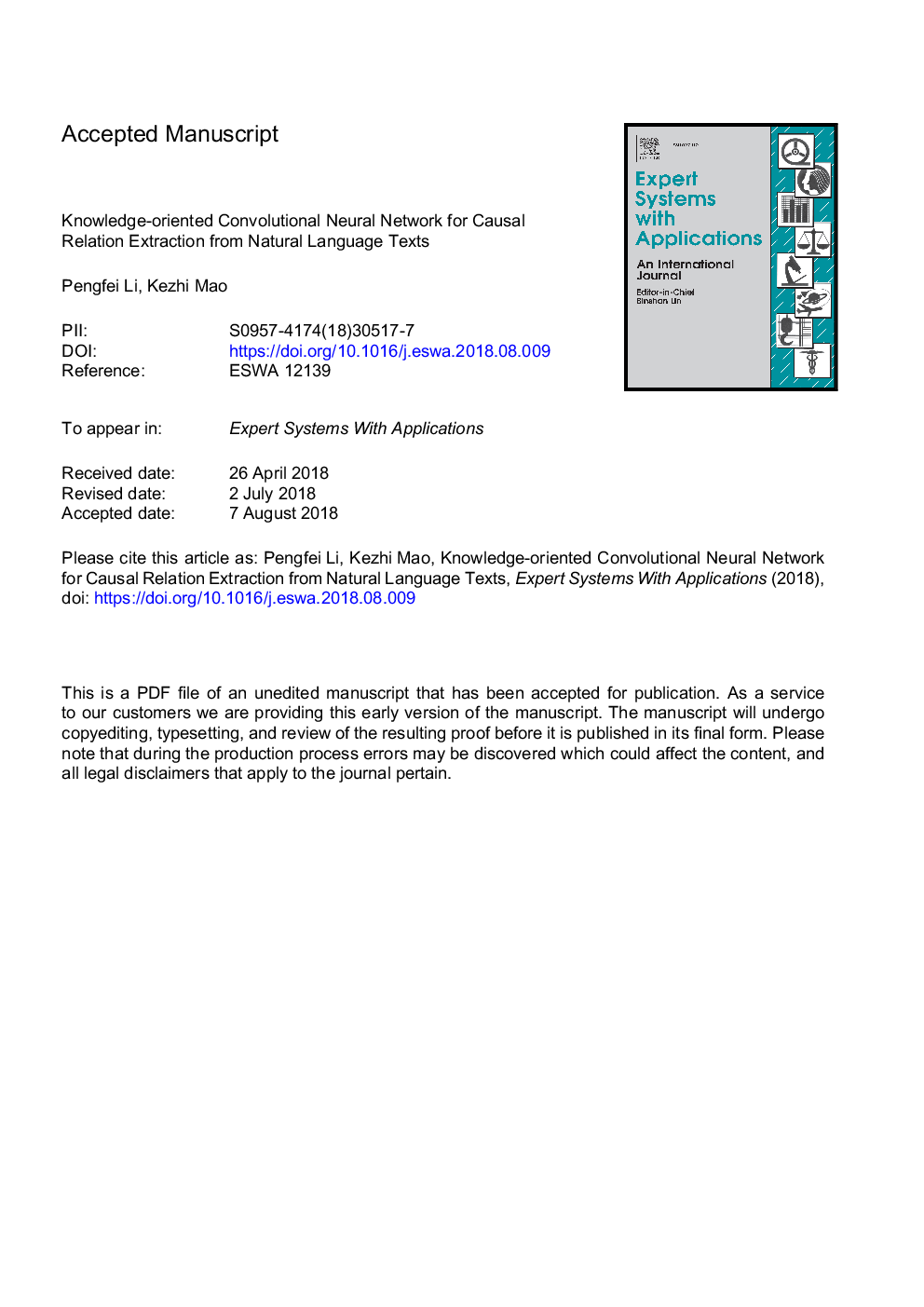| Article ID | Journal | Published Year | Pages | File Type |
|---|---|---|---|---|
| 11002297 | Expert Systems with Applications | 2019 | 43 Pages |
Abstract
Causal relation extraction is a challenging yet very important task for Natural Language Processing (NLP). There are many existing approaches developed to tackle this task, either rule-based (non-statistical) or machine-learning-based (statistical) method. For rule-based method, extensive manual work is required to construct handcrafted patterns, however, the precision and recall are low due to the complexity of causal relation expressions in natural language. For machine-learning-based method, current approaches either rely on sophisticated feature engineering which is error-prone, or rely on large amount of labeled data which is impractical for causal relation extraction problem. To address the above issues, we propose a Knowledge-oriented Convolutional Neural Network (K-CNN) for causal relation extraction in this paper. K-CNN consists of a knowledge-oriented channel that incorporates human prior knowledge to capture the linguistic clues of causal relationship, and a data-oriented channel that learns other important features of causal relation from the data. The convolutional filters in knowledge-oriented channel are automatically generated from lexical knowledge bases such as WordNet and FrameNet. We propose filter selection and clustering techniques to reduce dimensionality and improve the performance of K-CNN. Furthermore, additional semantic features that are useful for identifying causal relations are created. Three datasets have been used to evaluate the ability of K-CNN to effectively extract causal relation from texts, and the model outperforms current state-of-art models for relation extraction.
Keywords
Related Topics
Physical Sciences and Engineering
Computer Science
Artificial Intelligence
Authors
Pengfei Li, Kezhi Mao,
